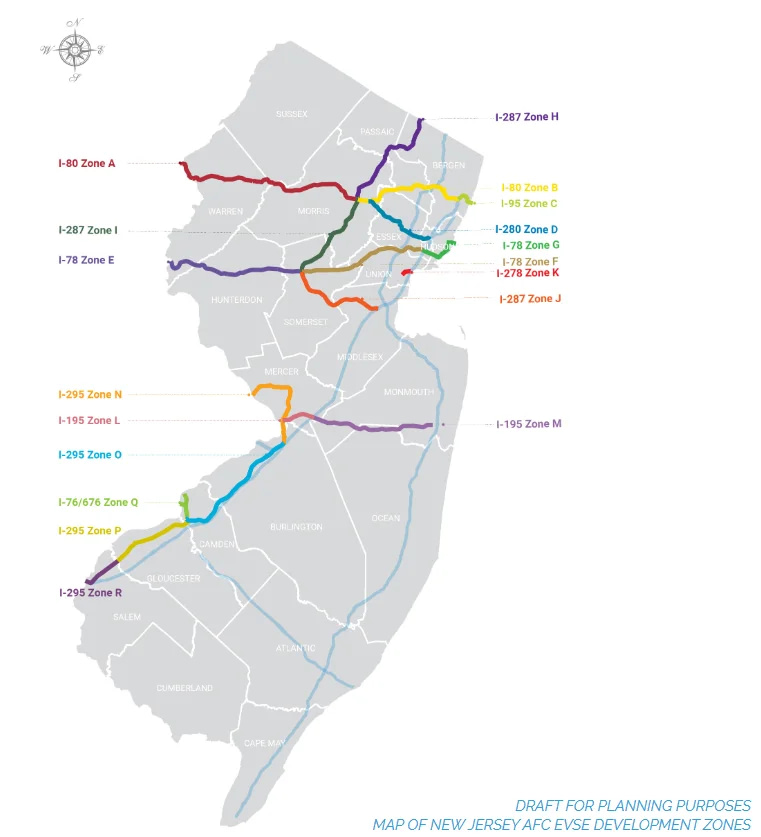The New Jersey Department of Transportation (NJDOT) has released an updated Electric Vehicle Infrastructure Deployment Plan that strengthens the state’s approach to developing a network of direct current fast chargers (DCFCs) along federally designated alternative fuel corridors.
New Jersey FY 2024 Approved Plan
NJDOT’s Deployment Plan focuses on establishing zones along the interstate highways that will comply with the NEVI required 50-mile spacing between DCFCs for those AFCs that are longer than 50 miles. These AFCs include interstates I-78, I-80. I-287 and, I-295. Build out of DCFCs along the New Jersey Turnpike and Garden State Parkway will be accomplished by the New Jersey Turnpike Authority: this includes the section of the NJ Turnpike signed as l-95.
The Atlantic City Expressway has DCFCs established by the South Jersey Transportation Authority. New Jersey has several AFCs less than 50 miles in length; it is the intent to establish under the NEVI program DCFCs along I-280 and I-195. Very short length roadways including I-76, I-676, and I-278 will be reviewed for opportunities to utilize nearby existing or planned DCFCs for practical access to convenient equitable charging: some locations may be submitted for discretionary exceptions.

The plan update was completed to align New Jersey’s strategy with requirements of the National Electric Vehicle Infrastructure (NEVI) Formula Program, which aims to build out a nationwide EV charging network through funding provided by the 2021 Bipartisan Infrastructure Law.
Some key ways NJDOT has revised the plan to accord with NEVI include mapping out proposed “zones” with potential DCFC sites approximately every 50 miles along the state’s qualifying alternative fuel highways. This is designed to meet NEVI guidelines ensuring fast chargers are available within these distances.
The updated plan also provides more details on NJDOT’s contracting process. The agency plans to issue a single statewide contract covering all interstate corridor zones to facilitate expedited EVSE development. Contractors will be responsible for installing, operating and maintaining chargers for a five-year period in compliance with NEVI standards.
Ensuring equity is a core focus of the revised deployment strategy. NJDOT will require at least 40% of funded DCFC sites to be located in or near disadvantaged communities, as defined by federal and statewide tools. Contractors must also submit Justice40 plans demonstrating benefits to these underserved areas.
Additional labor requirements have been incorporated mandating all charger installation electricians receive proper EVITP certification training. NJDOT will closely monitor progress and annually evaluate charger performance data to further refine New Jersey’s plans in line with the evolving NEVI Program.
By addressing these federal guidelines, New Jersey aims to establish a strategic, equitable and sustainable network of EV fast charging infrastructure throughout the state’s designated alternative fuel highway system using NEVI Formula Program funds.